A historic breakthrough in defence trade between the United Kingdom, the United States, and Australia was announced on 15 August 2024, according to a press release from the Ministry of Defence.
This marks a significant shift in how these nations collaborate on next-generation technologies and military capabilities.
The agreement, which involves lifting certain export controls and restrictions on technology sharing, is expected to cover up to £500 million in UK defence exports annually and facilitate billions of dollars in trade across the three nations.
Under the new framework, the UK’s AUKUS Nations Open General Licence, a US exemption to the International Traffic in Arms Regulations (ITAR) for the UK and Australia, and new national exemptions within Australia’s export control framework, will significantly reduce the need for licences when exporting or sharing specific defence products, technical data, and services.
Defence Secretary John Healey described the announcement as a critical development in the current global climate: “As tensions increase, and conflicts continue around the globe, our partnerships with our allies are critically important. This is a breakthrough that will allow our three nations to deepen our collaboration on defence technology and trade.”
Foreign Secretary David Lammy echoed the sentiment, stating: “Today’s historic announcement demonstrates how AUKUS is taking our relationship with the US and Australia to even greater heights. By breaking down barriers to defence trade and cooperation, we’re unlocking huge opportunities for UK jobs and growth—while bolstering global security and stability.”
The changes aim to streamline collaboration between scientists, engineers, and defence industries across the three nations, paving the way for faster, more efficient joint efforts in developing advanced military capabilities.
Kevin Craven, CEO of ADS Group, highlighted the agreement’s significance for the UK defence sector: “This is a potentially groundbreaking moment for the UK defence sector, widening our access to our closest allies and increasing opportunities for international trade.”


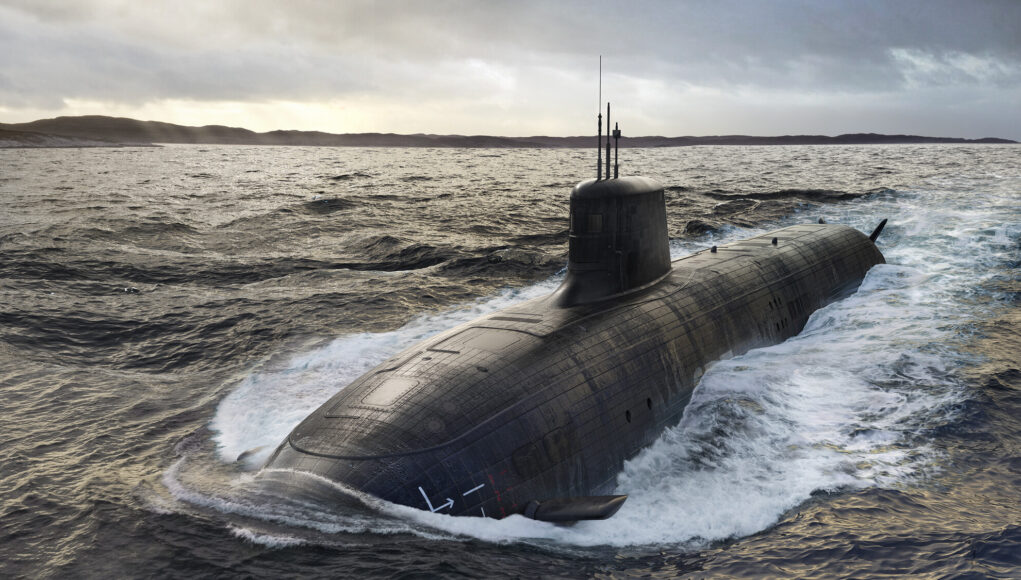

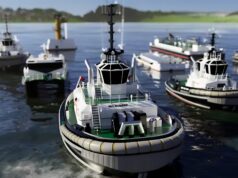

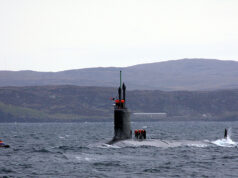
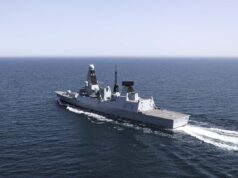

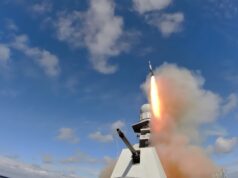
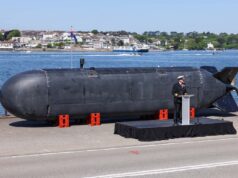
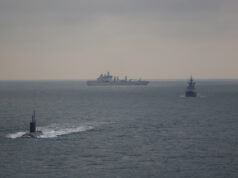
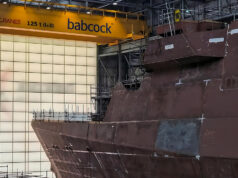

Excellent news. Brings us ever closer together and further limits what our 🗣politicians can do.
👌
You do know there’s a 1 year notice to exit in the latest agreement? So it really doesn’t limit what they can do.
I do but I just hope even that will amke them pause?
It will be interesting to see how this works out in practice. Lockeed Martin certainly referred to it when claiming that the Mako missile could be not only built in Britain but built here first.
Yes hopefully we can get rid of what remains of our own missile industry and set up Lockheed Martin’s with a really fat contract to make a missile no British aircraft can carry internally that cost ten of millions each that even the US neither what’s or can afford.
👍 agreed
It’s taken three years from the announcement of AUKUS to finally getting the UK the same exemption under US law that Canada already had to receive weapons export exemptions. This is hardly ground breaking.
This level of speed does not bode well for any kind of expansion of AUKUS to include the likes of South Korea and Japan much less India or the Philippines.
The US Congress remains the greatest threat to the US people and the entire western led order.
Three years is almost as long as long as the entire pacific war in WW2.
I’d hate to see what AUKUS would look like with the addition of SKJIP. Anyone care to do a Countdown with this group of letters ? 😁
Are you objecting to the potential acronym or the thought of them being included?
Seriously though, South Korea and Japan have unfinished business, India and Philippines have too many issues and links to China and Russia.
Personally I’d keep it to US, UK Aus and maybe France….. FUKUS sounds about right !!!!!😎
haha, France was seriously piss off over the deal, Macron had real toys out the pram moment suspending work on some joint programs with us.
NZ rumored to want in.
NZ brings very little to the party but its leadership has been too China friendly. Seems like adding a weak link more for tradition than any actual benefit.
NZ will bring exprt orders so it would be a one sided deal for them but not in their favour. But yes China weakness is a concern.
th french dump on everything in deals like this. french policy depends on how the wind blows and in what direction their exclusion is good news to everyone WHO IS involved.
l
NZ?
NZ has more Chinese than China !!!!! NZ might be a paper Member but I wouldn’t bet on it’s Integrity.
France might not be keen but Fiji might. 😉
Can’t we also get UNZIP from this group?
and very little has changed other than the Chinese emergency
“The US Congress remains the greatest threat…”
Hi Jim, you have heard of Putin, the CCP, North Korea, Iran etc?
Question is after lauding the deal now would Labour have done such a deal in the first place. If there was no AUKUS deal today would Labour be chasing one? No government or party is all bad, so just as Labour will do some good things and some bad whilst in office imo, this was one deal Tories got right imo.
Fair play to the parliamentary Labour party for backing this and not giving into the wider membership.
Lets wind the clock back to 2021.
AUKUS reflects the UK’s intention to tilt to the Indo-Pacific, as outlined in the Integrated review of security, defence, development and foreign policy. The tilt is necessary, the Government says, because the region is “critical to our economy, our security and our global ambition to support open societies.”
Prime Minister Boris Johnson told MPs the partnership demonstrates “Britain’s generational commitment to the security of the Indo-Pacific” and how the UK can help Australia “preserve regional stability.”
The UK National Security Advisor, Sir Stephen Lovegrove, remarking on the submarine element of the partnership, said it is “perhaps the most significant capability collaboration anywhere in the world in the past six decades.“
AUKUS comes with potentially lucrative defence and security opportunities for UK industry not just in submarine build but in the other areas mentioned in the joint statement, of cyber, artificial intelligence and quantum technologies.
However, the move has raised some concerns. Discussing the agreement in the House, MPs questioned whether the tilt to the Indo-Pacific risks focusing attention away from the security needs of the Euro-Atlantic. Keir Starmer, the Leader of the Opposition, said: “Whatever the merits of an Indo-Pacific tilt, maintaining security in Europe must remain our primary objective.”
Responding to concerns about China’s response, the Prime Minister said the partnership “is not intended to be adversarial towards any other power.” Members will discuss AUKUS’ impact on Anglo-Chinese relations in a Westminster Hall debate on 20 October 2021.
The Library discusses the defence aspects of the tilt to the Indo-Pacific in Integrated Review 2021: The defence tilt to the Indo-Pacific, CBP9217.
As for the agreement, there would be force majeure anyway which would be standard in any agreement which allows exit if war broke out for instance. Concerned there is only 1 year notice to exit in the latest agreement.
As far as we have been told AUKUS was a direct result of Australia approaching the UK to build nuclear submarines and the UK then approaching the US, off the back of that US basing and interim US submarine sales to Australia were added in exchange for Australian funding.
So the original idea was Australian, why would any labour government not want to be part of that given this it is likely to be the biggest export deal in British history and will result in the creation of tens of thousands of jobs in the UK and help strengthen one of our closets allies as well as bind our most powerful allies to the defence of one of our most vulnerable allies.
It’s worth noting that it was labour that commenced the UK first atomic bomb program and labour has always supported it in government. It was labour that f**ked up the Successor and Astute programs either both of which were running fine in 2010.
Jim Can you explain that last sentence ? Please.
Successor design process was started in 2006 under labour but delayed following SDSR 2010 culminating in the need to extend the Vanguard’s. Astute program was rolling out boats fairly regularly until the government forced slow down on the build program culminating in the delays we have now with with both the Astute 6 and 7 and the Dreadnaught class.
I think the issues go way back beyond that to the early 90s mate, which necessitated the US helping out with Astute due to the loss of regular drum beat build.
Why wouldn’t Labour want to part of it. Well for one it massively pissed off the French not a good way to do a Europe reset. Labour’s making it clear Europe first, very damming of Pacifictilt and global Britain. Whilst it’s a great deal.unions don’t actually care what’s being built just that there’s more jobs and therefore more membership, stark reality its the unions whove had to push this hard . Both Healey and Starmer have had back door snipes at the deal. And let’s not forget the party itself voted 70% against it. So it’s by no means a given when I look at it as outsider. I would say at best it’s a 50/50.
I will Labour credit when they do something good like the pay rise for the armed forces, long overdue. Tories were crap on defence but got this right. But I understand the party faithful on all sides have real trouble being objective.
trouble is, we don’t have a lot to tilt with.
It is mostly trade Andy, and R&D agreements, not military assets.
Firstly Boris didn’t exactly live in the same planet as us mere mortals, National Flagship etc etc etc, he played to the Gallery and worked for one sound bite to the next.
Secondly the Tilt to the East idea was pre 2022 and Mr Putin pretty well put a spanner in the works, but when you look at the detail it’s very short of actual firm commitments.
There is a commitment to forward base 1 single Astute to Australia along with 3 US Virginias at HMS Stirling from 2027, that’s it. By then we will have all 7 Astutes in service so it should be achievable.
It’s fine to say there are exit clauses, but at this level triggering them comes at a cost, and we have experience of those costs. We just need to think about Skybolt and the F111, both ended up with us having to spend even more money with Uncle Sam to get out of the Dog House. Polaris, F4 Phantom, C130 etc etc.
For the U.K Labour Party to exit the agreement would decimate our Naval Nuclear Industry and pretty well exclude us from any future agreements with the US.
I can’t see Australia doing it because it leaves them with no subs and one would trust them again, plus they lose all the other collaborative projects with the US.
Difficult to envision successful implementation of AUKUS as a net negative for any member. Rather, it will be a win-win-win proposition. That outcome is indeed a rare achievement.
Specifically, benefits for the US include: 1.) A forward operating base (including significant maintenance capability) in a priority area of the Indo-Pacific, from 2027. 2.) Australian investment in US submarine manufacturing base. 3.) Export sales of 3-5 Virginia class SSNs plus US content of SSN-A. 4.) Ultimately, a more capable equipped ally w/in a critical theater. 5.). Possible assistance of AUKUS partners of USN SSN maintenance backlog, on a longer term basis.
For the UK: 1.) Similarly to US, forward operating base in the I-P. 2.) Similarly to US, Australian investment in UK. 3.) Even greater employment and export sales potential to Australia than the US. 4.) Benefit of expedited design process for SSN-A, incorporating the best tech available from the partners, as a result of design cost/benefit tradeoff analyses. 5.) Significant potential of RN benefiting from economies of scale from SSN-A production. 6.) Possible increase in RN next gen SSN flotilla, w/ significant increase in capability, provided sufficient HMG investment. 7.) Possible financial benefits accruing from assistance in the maintenance backlog of USN SSNs at either Devonport or Faslane/Coulport, after sufficient drydocks become available.
For Australia: Benefits self-evident, an entirely new industry base and military capability. The Australians are sufficiently entrepreneurial that they will eventually be exporting subsystems and systems to UK and US. Almost guaranteed.
This post does not the benefits of AUKUS Pillar II. Pillar II initiatives will eventually produce benefits which dwarf those of Pillar I. Guaranteed.
…more capably equipped…🙄
A very succinct overview, there are some issues that can’t be gotten around or just haven’t been addressed yet.
Australia not being able to access the Nuclear tech, they will need U.K or US help there if they have issues or they ever need to refuel them. That needs a bit of thinking about, but there are always work rounds.
For me the glaring omission is the post SSN(A) after life of the Where will be decommissioned and by whom ? At present under the NPT the spent fuel will either have to be returned to U.K or added to the US decommissioning programme. It may be spent fuel but it’s still possible to extract a recycle fissile material.
Can you do us all a favour ? If Tango man gets reelected can you post a copy of your post to him at Mar a Largo, so he can try and read it ? 😉
Not sure if you seen this but 4 days ago we signed a treaty with Australia and informed the IAEA that all nuclear material will be stored and disposed in Australia from the Australian submarines. The Australian’s have not announced how they will actually do that yet although we ourselves only just started scrapping old SSN’s so I guess they have time.
It’s certainly seems like a win all round, fingers crossed, I think ITAR exemption may be the biggest factor that comes out of this although we will have to see how this actually happens and if it causes restrictions for the UK on working with non AUKUS members.
I’m impressed you actually think political class is competent. There exit clauses for a reason if it was to horrific to exit you wouldn’t add them.
Countries renage on international agreements all the time, AUKUS caused Australia to axe its deal with France. So, like I said its a concern, that’s not the same as saying they will. As for industry TSR2, which was axed in favour of social programmes, it comes down to political preference.
I don’t support either party, but I think Tories got this right. Labour just raised salaries for the armed forces which was also right. Heck even the greens and reform have some good ideas.
Personally I think were going to find that the east is where the problem actually is. Western sanctions have been largely useless because of China’s support. It’s Chinese machine tools now churning out military components in Russia, for instance,. Its Chinese electonic replacing Western electronics in Russian kit. Iran would have collapse long ago but China has continually supported it buying its oil and gas, a collapse would mean no Russian support as the population is largely against the Mullahs who currently hold power. North Korea backed by China has provided vital ammunition and hardware to Russia. North Korea only exists because of China, it was Chinese troops that stopped the march north of the allies in the Korean war. Putin is completely in Xi’s pocket. Russia isn’t a threat to NATO today but in 5 years with its factories now producing arms at volume it will be. The only reason Putin can do this is backing from China. Wars are won in factories the side that can out produce the other wins, Russia has unfettered access to the largest manufacturer on the planet. The political notion that Russia is a threat is misplaced mainly to further anither political objective, Russia can’t survive without its backers.
the selection of the T26 by the Australians is the finest example of what this can mean to me respective nations coffers.
Both AUKUS and Tempest are both crucial to this country’s future defence. Both have enormous export potential and in the case of Tempest , and spin off technology.
It is not an either or, we need to have a strong defence in all areas.land, sea and air.
A low profile game changer. Okay there are still some barriers (e.g. missile and drone technology or items banned by international treaties, such as chemical weapons or land mines), but apparently c.80% of the UK’s defence related purchases from America and Australia will be automatically cleared, rather than face at the absolute minimum a month long approval process – with potential challenges, blocks or delays caused by anyone with an agenda. It’s hard to see Canada not trying to now join AUKUS ASAP. We know Japan also wants to join, but apparently still lots of issues surrounding their national security laws and the controls and defences they have in place – traditionally they seem to rely on their language as being a near insurmountable security wall! But the demands of the Tempest programme are forcing them to get real as otherwise the programme will be primarily based in the UK and to some extent Italy – excessively so from their perspective. New Zealand is clearly being left behind, too small and politically not toeing the line enough on China, plus the annoying ban on visits by USN and other allied warships that are nuclear powered or may be carrying nuclear weapons.